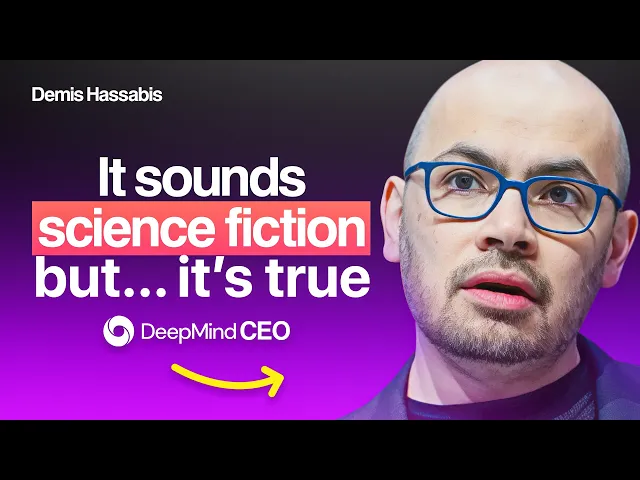Inside Google’s AI Lab: Drug Discovery, World AI Model & AlphaEvolve

Inside Google's AI: transforming drug discovery
Google DeepMind's latest innovations demonstrate how artificial intelligence continues to push boundaries in solving complex scientific problems. The groundbreaking work being done at Google's AI lab isn't just impressive from a technical perspective—it has far-reaching implications for healthcare, scientific discovery, and how we approach some of humanity's most pressing challenges.
Key developments from Google's AI lab
- AlphaFold has evolved beyond protein folding into a comprehensive system that can now predict how proteins interact with other molecules like DNA and RNA, making it significantly more valuable for drug discovery and understanding biological mechanisms
- Gemini, Google's "world model" AI, represents their most capable multimodal system, designed to understand and reason about the physical world through multiple sensory inputs including text, images, audio, and video
- AlphaEvolve applies AI to automated programming, essentially creating an AI system that can automatically generate algorithms to solve specific problems, potentially transforming how we approach software development
The revolution in drug discovery
The most transformative advancement coming from Google's AI lab is undoubtedly the evolution of AlphaFold into a more comprehensive tool for drug discovery. While the original AlphaFold made headlines by solving the protein folding problem, this expanded capability represents a quantum leap forward.
Traditional drug development is notoriously expensive and time-consuming—often taking 10+ years and billions of dollars to bring a single drug to market, with high failure rates along the way. By accurately modeling how proteins interact with other molecules, AlphaFold's expanded capabilities could dramatically accelerate the early stages of drug discovery, potentially reducing both costs and time-to-market for new treatments.
This matters immensely in the context of today's healthcare challenges. As new pathogens emerge and existing ones develop resistance to current treatments, the ability to rapidly develop targeted therapeutics could save countless lives. Moreover, for rare diseases that affect small populations (making them less economically viable for pharmaceutical companies to pursue), more efficient drug discovery processes could finally make treatments accessible to neglected patient populations.
Beyond what Google mentioned
While Google's advancements are impressive, they exist within a broader ecosystem of AI-driven drug discovery efforts. Companies like Recursion Pharmaceuticals and Insilico Medicine are taking complementary approaches
Recent Videos
How To Earn MONEY With Images (No Bullsh*t)
Smart earnings from your image collection In today's digital economy, passive income streams have become increasingly accessible to creators with various skill sets. A recent YouTube video cuts through the hype to explore legitimate ways photographers, designers, and even casual smartphone users can monetize their image collections. The strategies outlined don't rely on unrealistic promises or complicated schemes—instead, they focus on established marketplaces with proven revenue potential for image creators. Key Points Stock photography platforms like Shutterstock, Adobe Stock, and Getty Images remain viable income sources when you understand their specific requirements and optimize your submissions accordingly. Specialized marketplaces focusing...
Oct 3, 2025New SHAPE SHIFTING AI Robot Is Freaking People Out
Liquid robots will change everything In the quiet labs of Carnegie Mellon University, scientists have created something that feels plucked from science fiction—a magnetic slime robot that can transform between liquid and solid states, slipping through tight spaces before reassembling on the other side. This technology, showcased in a recent YouTube video, represents a significant leap beyond traditional robotics into a realm where machines mimic not just animal movements, but their fundamental physical properties. While the internet might be buzzing with dystopian concerns about "shape-shifting terminators," the reality offers far more promising applications that could revolutionize medicine, rescue operations, and...
Oct 3, 2025How To Do Homeless AI Tiktok Trend (Tiktok Homeless AI Tutorial)
AI homeless trend raises ethical concerns In an era where social media trends evolve faster than we can comprehend them, TikTok's "homeless AI" trend has sparked both creative engagement and serious ethical questions. The trend, which involves using AI to transform ordinary photos into images depicting homelessness, has rapidly gained traction across the platform, with creators eagerly jumping on board to showcase their digital transformations. While the technical process is relatively straightforward, the implications of digitally "becoming homeless" for entertainment deserve careful consideration. The video tutorial provides a step-by-step guide on creating these AI-generated images, explaining how users can transform...
